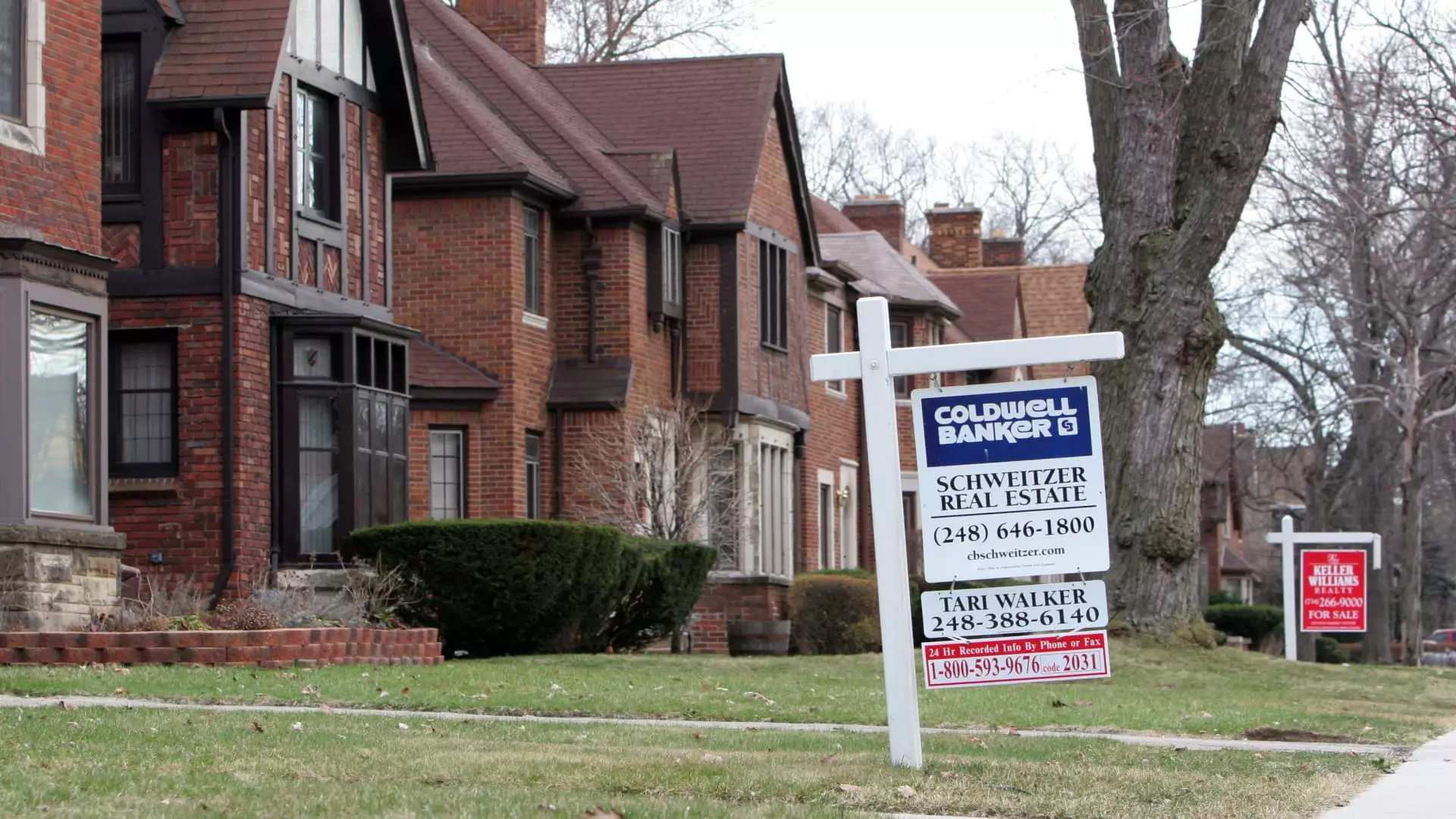The housing market continues to experience a surge in home prices, as mortgage rates decline. According to a recent report by CoreLogic, home prices on a national level rose by 5.2% in November compared to the same month the previous year. This marks an increase from the 4.7% annual gain recorded in October. Notably, states in the Northeast region enjoyed the highest gains in home prices, with Rhode Island, Connecticut, and New Jersey experiencing notable growth rates of 11.6%, 10.6%, and 10.5%, respectively. However, some areas, such as Idaho, Utah, and Washington, D.C., witnessed year-over-year price declines.
The sustained strength in home prices is particularly remarkable given the affordability challenges facing the nation. Selma Hepp, the chief economist at CoreLogic, attributes this trend to pent-up demand in the market. She explains that markets facing an extended shortage of inventories, compounded by the lack of new homes for sale, have recorded substantial price gains throughout the year.
The availability of low mortgage rates has significantly contributed to the increase in home prices. Lower mortgage rates translate to greater buying power for consumers, thereby stimulating demand. While experts anticipate a slight softening in prices in the coming months, this projection largely hinges on supply levels. Currently, due to low supply and increasing demand resulting from lower mortgage rates, home prices are predicted to continue their upward trajectory.
Fluctuations in Mortgage Rates
Following more than a dozen record lows in the initial years of the Covid-19 pandemic, mortgage rates began to rise sharply in 2022. By October of the same year, rates reached their highest point in over two decades. The average rate for a 30-year fixed loan briefly surpassed 8%. However, the rates have since receded and now hover in the high 6% range.
City-Level Price Trends
At the city level, Detroit witnessed the largest annual price gain, registering a growth rate of 8.7%. This surpassed Miami, which had held the top spot for 16 consecutive months, with a gain of 8.3%. Selma Hepp attributes Detroit’s rapid appreciation to its lagging price growth during the pandemic. Additionally, other Midwest areas are experiencing strong appreciation due to their affordability.
Although Detroit’s median home price remains one of the most affordable in the country, the local market is considered overvalued due to the income levels of its residents. CoreLogic’s survey reveals that approximately 82% of the 397 metropolitan housing markets analyzed are considered overvalued. This indicates that home prices in Detroit are disproportionately high when compared to the earning potential of local households. Notably, cities such as Boston, Chicago, Los Angeles, and Washington, D.C. are deemed “normal” in terms of valuation, suggesting that buyers with higher incomes are fueling demand in those areas.
The rapid increase in home prices can be attributed to the decline in mortgage rates, which has boosted consumer buying power. Despite an expected slight softening in prices in the near future, this trend will largely depend on the availability of housing supply. Currently, with low inventory levels and heightened demand due to lower mortgage rates, home prices are projected to continue escalating. Nevertheless, the overvaluation of homes in certain markets, such as Detroit, presents challenges tied to income disparities and affordability. The housing market’s trajectory will likely be influenced by numerous factors, including ongoing economic conditions, mortgage rate fluctuations, and the available housing supply.

Leave a Reply